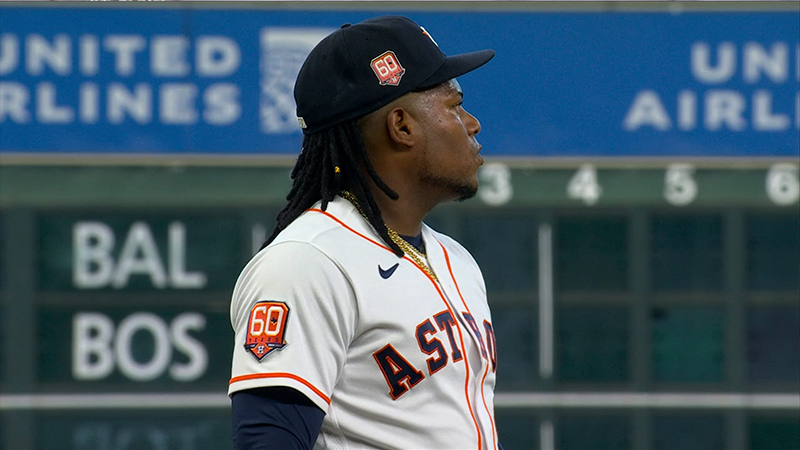JILIBET Sports Betting Basics and Key Pitfalls

Basic Concepts of Odds and Betting Markets First, I'd like to introduce some fundamental concepts of sports betting, which essentially involves what we call 'odds' and 'betting markets'. The betting market reflects the difference between the teams, while odds are related to the probability of winning money. In simple terms, odds represent how much money you can win. Essentially, all odds and betting markets are derived from probabilities and numbers. Next, I'll use a simple example to explain these concepts.
Imagine a 20-year-old adult competing in a fight against a grade school student. Normally, who would you think is more likely to win? Of course, it's the adult because they have a higher probability of winning. Pay attention to the keywords here. Since the adult's probability of winning is higher, the odds will be lower. So, if you bet on the adult to win the fight, the expected return would be relatively lower. On the other hand, if you bet on the grade school student, expecting an upset or a dark horse scenario, you would usually receive a higher return. Thus, it's clear that the less likely an outcome, the higher the odds and the greater the reward.
As for the betting market, think of it this way: since there's an inherent difference in strength between the adult and the grade school student, let's assume we tie one of the adult's hands. With only one hand free, the chances of winning the fight may become more balanced. So, when there's a big disparity in team strengths, what we call handicap betting markets come into play. The purpose of these markets is to equalize the chances of winning. If I want to bet on the adult winning but also want a higher return, I might choose the option where the adult has one hand tied.
Another common betting option in sports betting is what we call 'Over/Under' or 'Totals'. Simply put, this involves predicting whether the total goals or points scored in a game will be over or under a set number. For instance, in a basketball game, if the bookmaker sets the total at 200.5 points, a total score higher than 200.5 is called 'Over', and lower is called 'Under'.
I've just mentioned some basic terms of sports betting like odds, betting markets, handicaps, and Over/Under. Those who have played sports betting should be familiar with these, and those who haven't can look them up online or even ask a betting shop owner for explanations.
Three Taboos of Sports Betting
1.1 Case Study One: Don't Be Stubborn, or the Gods of Gambling Will Punish You Before starting all the lessons, I'd like to share a few examples of sports betting failures. Yes, failures, because while success has many reasons, failure tends to stem from a few common factors. Listen and see if you've heard of or even made similar mistakes in your sports betting journey. By reviewing these mistakes, we can approach sports betting correctly.
When I first started sports betting, I naively thought strong teams should win. People often said, "The Yankees can't lose six in a row, right?" or "The Red Sox can't possibly get swept at home by a weaker team." But don't be superstitious. The more stubborn you are, the more likely it will happen, especially if you utter the key phrase: "I don't believe XXX will happen." Usually, that's when bad luck strikes.
I remember a clear example shared by a friend. In sports betting, you can bet on whether the total score of both teams will be an odd or even number. Generally, the probability of odd or even is 50-50. Once, my friend noticed that a team had three consecutive odd results, so he decided to bet on even. He even used a progressive betting strategy. But then, ten consecutive odd results followed. By the eighth game, he had lost five times in a row, starting with a bet of ₱20,000 and losing ₱20,000 + ₱40,000 + ₱80,000 + ₱160,000 + ₱320,000, totaling ₱620,000, though I know he lost more than that amount.
I've also heard of a Filipino sports association chairman who played Baccarat in Macau. He was also superstitious, betting continuously on one side and uttering the key phrase, eventually losing eight hands in a row before admitting defeat.
So, I often feel that the gods of gambling like to teach these people a lesson. In the world of sports betting, remember, nothing is impossible – ANYTHING IS POSSIBLE. It's all about probability, whether you encounter it or not. So, when betting, don't be too stubborn. Stay rational, have a reason for choosing a team, and don't bet impulsively or out of stubbornness – that's definitely a wrong approach to sports betting.
1.2 Case Study Two: Why Do I Win on Small Bets and Lose on Big Ones? You might often wonder why you win when betting small but lose when betting big. Many of you might be nodding or smiling wryly at this, but that's gambling – you can't always win. Even the best analysts in the U.S. can only achieve a 60% hit rate in the long term.
When our betting is accurate and smooth, we all tend to think we've mastered the secret of how to win. We boast to our friends with a smile, and there might even be moments when we think we're gambling gods.
Then, some people quickly increase their stakes, while others observe a bit longer and wait until they feel more confident before raising their bets. The mistake here is the same as when I first encountered sports betting. If you buy stocks at their peak, everyone knows what happens next. The same goes for betting at the peak of your winning rate. As mentioned earlier, the strongest gamblers have a 60% win rate; a short-term rate of 80% or higher only deepens the fall.
As a child, I would blame bad luck when I started losing after raising my bets. But after paying a lot of tuition fees and gaining experience, I realized this is normal. Even the best can't keep winning forever. However, that doesn't mean you shouldn't raise your stakes. The key is to adjust properly. It's heartbreaking to win small and lose big. You should plan your betting strategy in advance – how much to raise your stakes after winning and how to distribute your chips if the results are not as expected. Decide your betting rules in advance and don't let the outcomes sway you. We'll discuss more on bet sizing in later lessons.
1.3 Case Study Three: Why Do People Disappear After Placing Big Bets? The third case study is about people disappearing after placing big bets. You probably have several examples of this. In Philippines's underground betting circles, you didn't have to pay upfront; you settled accounts a week later. This cleverly exploited human weaknesses, making people treat money carelessly. A ₱5,000 bet could quickly become a life-threatening debt, especially for beginners. After several unsuccessful bets on strong teams, they had to settle accounts on Monday. To "recoup losses," they bet all their lost money at once, hoping to win and quit. Some indeed succeeded, but many more ran away.
People often ask me, "Dawei, save me!" hoping I'll give them a sure-win tip. But if I really knew which team would definitely win tomorrow, I would mortgage my house and bet all I could.
In sports betting, there's no such thing as a sure thing. Recently, a friend told me that even in fixed matches, commonly known as rigged games, there's no guarantee of winning. Betting big and winning is just good karma or luck. For those purchasing this course, whether you're currently losing or winning, I hope you approach it with a "start from zero" mindset and step by step move towards profitable sports betting. Rushing to recoup losses usually leads to even more losses.
Alright, having listened to these failure cases, we should avoid making the same mistakes. Now, let's start on the path to profitable sports betting.
Copyright Notice : This article is an original work by JILIGAMES | Philippines' Premier Live Casino & Free Slot Games. It follows the CC 4.0 BY-SA copyright agreement. For reprinting, please attach the original source link and this notice.Original article link : https://jiligames.bet/post/newbie-guide/jilibet-sports-betting-basics-and-key-pitfalls
Frequently Asked Questions
The "best" live casino game to win can vary based on a player's skill level, experience, and personal preferences. However, some games are known for having better odds or a lower house edge, which can increase your chances of winning. Here are a few popular live casino games often considered favorable for players:
-
Blackjack: Known for having one of the lowest house edges in the casino, especially if played with basic strategy. The game involves skill and decision-making, which can influence your chances of winning.
-
Baccarat: Particularly popular in Asian markets, baccarat has a relatively low house edge, especially on the 'banker' bet. It's a game of chance, with no skill or strategy involved.
-
Roulette: European roulette, with a single zero, offers a lower house edge compared to American roulette, which has both a single and a double zero. Betting on outside chances like red/black or even/odd gives you nearly a 50% chance of winning.
-
Craps: Certain bets in craps offer good odds, such as the pass line and come bets. The game can be a bit complex for beginners but rewarding once you understand the rules and strategies.
-
Poker Games: Games like Texas Hold'em or Caribbean Stud involve skill and strategy, which can improve your chances of winning if you're experienced.
Remember, while these games might offer better odds, the outcome in casino games is largely based on chance, and there is no guaranteed way to ensure a win. It's also important to gamble responsibly and within your means, regardless of the game you choose to play.












